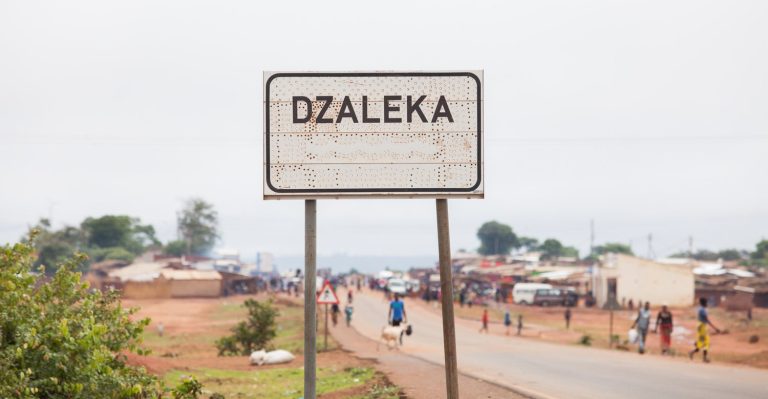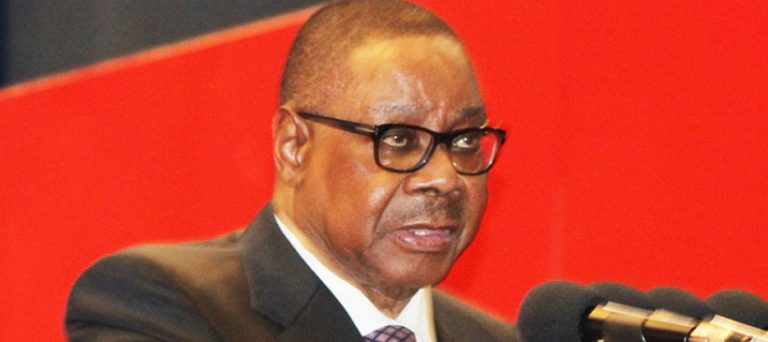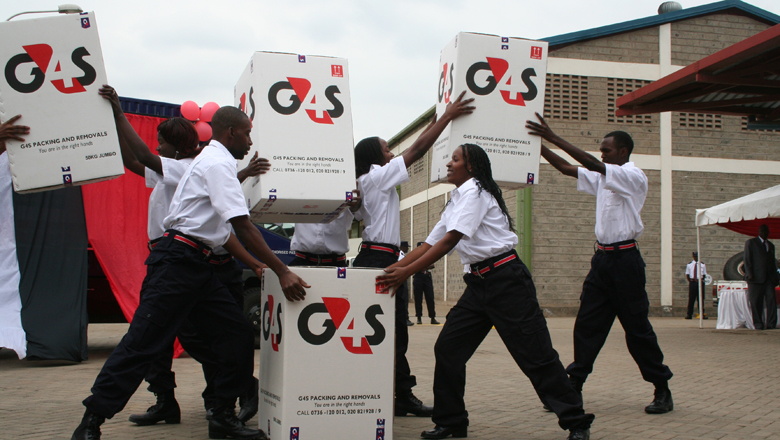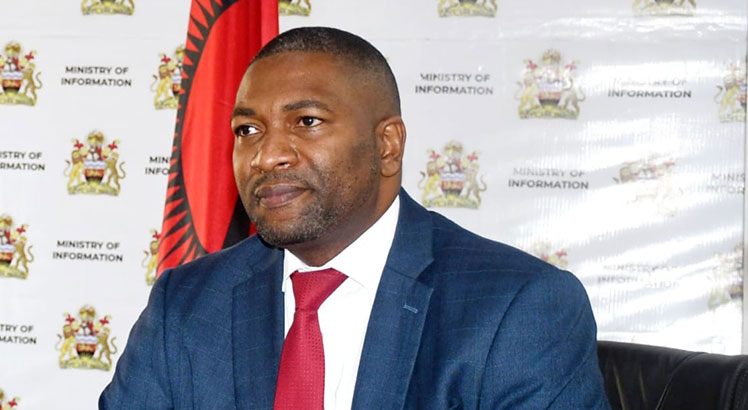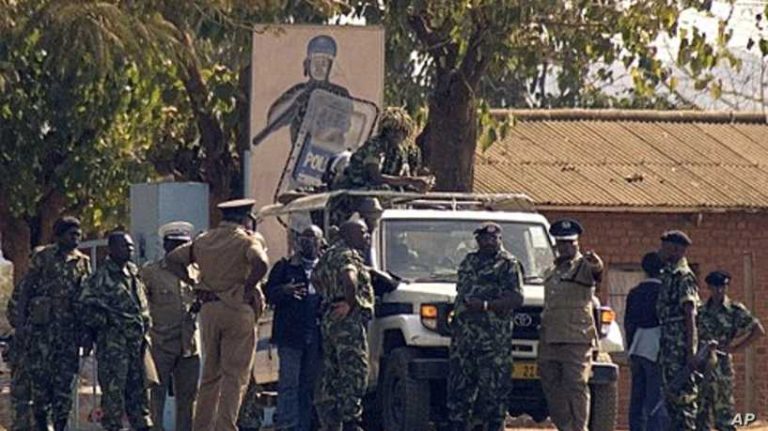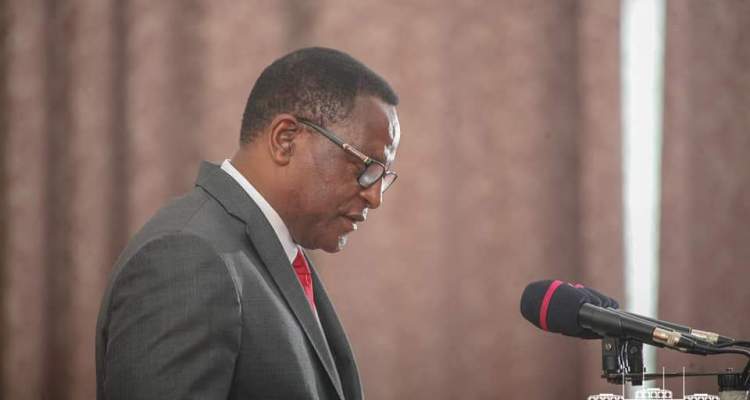BY JACK MCBRAMS
In a shocking revelation that sends shivers down the spine, the very essence of trust has been shattered as allegations of corruption and sexual abuse come to light within the refugee resettlement program.
The names that were supposed to be synonymous with protection – the United Nations Refugee Agency (UNHCR), Malawi Police Service, and Homeland Security officials – stand accused, casting a shadow of doubt on those who should have been guardians of hope.
Amidst this disheartening narrative, the most vulnerable among us have been stripped of more than just their dignity. Millions intended for the betterment of lives, for the spark of new beginnings, have been cynically swindled away, leaving victims with shattered dreams and stolen futures.
As you delve into this story, may you feel the weight of the survivors’ anguish, their voices echoing through the corridors of injustice. It’s a stark reminder that even amidst the darkest corners, tales must be brought to light, emotions must be felt, and justice must prevail.
What is Resettlement?
Resettlement is the selection and transfer of refugees from a country where they have sought protection to a third country that has permitted them to stay based on long-term or permanent residence status. It is a solution that ensures refugees are protected against forced return, provides them access to rights similar to those enjoyed by citizens, and allows them to eventually become citizens of the resettlement country.
The UN Refugee Agency works closely with its partners to identify the most vulnerable refugees with urgent protection risks. Still, the final decision on whether or not a refugee will be resettled in a country is the discretion of the country of resettlement.
PIJ Delves Deeper
In May this year, PIJ got wind of reports that some UNHCR officers at the camp, Ministry of Homeland Security officials, and Department of Refugees officials were involved in fraudulent schemes that swindled desperate refugees at the camp on the pretext that they would be allocated slots on the resettlement list.
During the subsequent months, through careful investigations, interviews with victims, alleged perpetrators, Police investigators, independent observers and NGOs fighting for the rights of refugees, PIJ unearthed a web of deceit and an intricate syndicate of fraudsters and criminals that work in tandem with some officials from UNHCR and government to fleece innocent refugees.
Lilongwe-based refugee advocacy organisation INUA Advocacy told PIJ that the resettlement scheme is the multi-sectoral and multi-agency category that claims large amounts of money.
“UNHCR and Homeland Security officials are involved in this lucrative ‘business’. The refugees used by these officials are widely known in the camp. To better understand why this is the most expensive, it is important to know that UNHCR resettles less than one per cent of the world’s refugee population annually. Resettled refugees gain immediate access to employment and can obtain citizenship within the first five years of arrival. The syndicate takes advantage of the imbalance between supply and demand and discriminatory refugee laws in Malawi that cause many to seek a way out. The amounts of money vary from K1.5 million to K45 million,” the organisation’s CEO Innocent Magambi explained.
Fraud Leads to Death in Camp
Early last year, Burundian refugee John Niyonkuru was approached by a Mwalabo or Ndayisenga Omar, whose real name is Ndayishimiye Placide, a fellow refugee and known middleman in the camp on the understanding that he would enlist him for resettlement with the aid of a UNHCR official.
“He told me that there was an opportunity that enabled people like [refugees] to travel outside Malawi to settle in European countries,” Niyonkuru, who then owned a tuckshop in Lilongwe Area 47, Sector 7, told PIJ.
“I didn’t respond immediately, but after some time, we started discussing the issue at length because he was a customer at my shop and frequented the place. So, I eventually agreed to meet the UNHCR officials who would assist me with the process,” he said.
The first meeting was at Dowa Turn-off, where they met a UNHCR accounts official whom Niyonkuru was familiar with from Dzaleka Refugee Camp. He was requested to pay an initial K200,000 to kickstart the process.
In the follow-up meeting, Niyonkuru claims Mwalabo told him that the total cost for processing his documents was K10 million.
“But I talked him down, and we settled for K7.6 million, including the K200,000 I had already paid. He assured me that everything would move smoothly because I had all the relevant papers in place,” he explains.
A few days later, Mwalabo and Niyonkuru met with UNHCR official Owen Nyasulu and another official who claimed to work for the International Organisation for Migration (IOM). They asked him to pay a deposit to enable the process to start in earnest. He paid the team K1.2 million in cash.
“On that day, Nyasulu showed me the documents showing that the trip was being arranged, including my date of departure and flight route. When we met the second time, I paid them K2.2 million, but they told me that my trip had been delayed because of some logistical problems. Later, they brought me fresh documents with a new date and route. For both trips, the destination was Australia, flying via South Africa,” he said.
Niyonkuru made the final payment of K4 million when both Mwalabo and Nyasulu assured him that the trip was confirmed.
“During all the three occasions, I paid the money in both their presence,” he said.
He explains that he waited patiently, preparing for the trip and selling his belongings. But the date came and went.
“So, when I realised that the whole process was a scam, I started demanding my money from Mwalabo because he is the one who led me to Nyasulu; he is the one that I knew. But he started threatening me, telling me that the UN people would make my life difficult or even kill me,” he explains.
Stranded and feeling unsafe, Niyonkuru sought assistance from community leaders in the camp – Manase Mulinda Kalunga, the leader of the Congolese Community in the camp and Burundi community leader Butoyi Fideli.
According to Manase, the two community leaders summoned Mwalabo, who initially feigned ignorance of the transaction with Niyonkuru.
“We then decided to report the issue to the Police Headquarters, who summoned Mwalabo. At the Police, he accepted that he and Nyasulu had indeed received K7.6 million from Niyonkuru and agreed to pay the money in instalments. That day, he paid K600,000 in cash and agreed to pay the rest at the end of the month. But at the end of the month, he only paid K200,000 and then started behaving funny,” Manase explained.
Threats and Fulfilment of Killing by Bombing
According to both Manase and Niyonkuru, Mwalabo then started threatening the team.
“He told us that whatever would befall us was our own making. On December 14 last year, a few days after his threat, we were in the office when Butoyi walked out for a bit. After a few seconds, we heard a loud explosion like a bomb. When we rushed out to check, we realised an explosion had hit him. We rushed him to Dowa Hospital, where he was eventually referred to Kamuzu Central Hospital due to the extensive nature of his injuries,” Niyonkuru told PIJ.
At the time of the incident, Dowa Police Station publicist Gladson M’bumpha said the attack happened when Fideli, aged 54, was chatting with his secretary, Bruno Ndaishime, outside his office.
“While bidding farewell to each other, Fideli suddenly saw a person lighting matches before throwing an unknown object at them, which he suspects to be a grenade burst with a loud noise, and he suspects a fellow refugee of Rwandan origin to have done this,” M’bumpha said.
Following this, Fideli fell while bleeding, and he was rushed to Dzaleka Health Centre by well-wishers, where he was further rushed to Dowa District Hospital following several cuts and fractures on both legs he sustained.
M’bumpha said that the secretary, Ndaishime, also sustained cuts on both legs and the back.
He also said that apart from Fideli and his secretary, three other people, including an 11-year-old minor passing by the same place while on their way homes, also sustained various injuries, and all were admitted to Dowa District Hospital.
Fideli’s funeral service at Dzaleka Refugee Camp on 21 April
Upon receipt of the matter, Police visited the scene where a grenade pin and some fragments were collected.
When PIJ asked Dowa Police spokeswoman Alice Sitima for an update on the case, she said she did not know the case.
Fideli died on 19 April due to the injuries sustained during the attack. He was buried on 21 April at Dzaleka. After this, the Regional Central Eastern Police Headquarters based in Kasungu arrested Mwalabo for murder. He was released a few weeks later.
“When they arrested Mwalabo, the Police summoned all of us to Kasungu, including the leaders, and we gave our statements and showed them all the evidence. But we were surprised that he was granted bail a few weeks later,” Niyonkuru said.
He claimed that after the Police interviews at Kasungu, he started receiving calls from a Police Prosecutor who, he claims, wanted him to explain how and where he got the money to pay Mwalabo.
“But I suspected that it was part of a cover-up. So I told them I had already resolved the issue with Mwalabo at Area 30, and he agreed to repay me. All I knew was that Mwalabo was answering a murder charge in Kasungu, and I had already given my statement,” he said.
Police Central Eastern Regional spokeswoman Esther Mkwanda promised to look up details of the case, but she had yet to do so as we went to press.
Nyasulu, who works at the UNHCR office at Dzaleka, initially responded to our questions via WhatsApp. But he went cold when we raised the issue of his involvement in the syndicate, blue-ticking our WhatsApp messages and ignoring our calls.
According to Manase, since the Niyonkuru case came to light, six more victims within the camp came forward, claiming that they had been defrauded between K4 million and K22 million by the syndicate.
Kumwenda’s statement filed at Dowa Police Station on June 11
Burundi National Swindled K60 Million
In another incident, Burundi national Protais Kamana, who had initially sought asylum in a refugee camp in Uganda, arrived with his wife and two young daughters in February after being told that getting resettlement from Malawi was easier.
“He was trafficked by a friend who told him that in Malawi, there was a way in which he could get resettlement for his family,” our Police source told us.
Once he arrived, he was introduced to a middleman from Dzaleka, popularly known as Gasongo, whose real name is Jacques Niyangabo. Gasongo then took him to meet a Homeland Affairs official, Peter Kumwenda, at the ministry’s offices in Area 3 in Lilongwe, where he was asked to pay an advance payment of K10 million to the official for the service. Kumwenda works in the Department of Refugees section of the Ministry of Homeland Security.
Of the K10 million, our source says Kumwenda collected K5 million, while the other K5 million was given to Gasongo to be shared by other members of the syndicate.
A Police statement by Kamana filed at Dowa Police Station states that a few days after receiving the first payment, Gasongo approached him at Riverside Hotel, where he was lodging with his family, to demand another K3 million.
Kamana was introduced to another official, Frank Kaduka, during the same meeting. He was told he would no longer deal directly with Kumwenda but with Frank or Gasongo. He was told to prepare another K24 million apart from the K13 million he had already paid. At this stage, he says, he started being sceptical of the whole process and insisted on paying the money directly to Kumwenda.
“The next day, a team of four people, Gasongo, Mwalabo, Frank and another individual identified as Alfred Gondwe, came to the hotel and assured me that the process was legit and it would indeed work. So, I counted K24 million and gave it to them. From that meeting, Mwalabo was assigned to start working on my family’s Covid-19 certificates, but he never showed up again,” he said.
According to Kamana, the group then came up with another excuse, claiming that the family’s relocation papers had been misplaced and needed another K9 million to fix it, which he paid.
“But when the resettlement process happened, my family was not on the list. That is when Frank told me that ‘zinthu zayipa, you have to go back to your country.”
After this, the family returned to Dzaleka, but they kept pressing for their case. And that is when Kumwenda got wind of the fact that the syndicate had been using his name to syphon funds off the desperate Kamana.
In an 11 June report to Dowa Police, Kumwenda confessed to receiving a K5 million ‘gift’ from Kamana.
“I recall that during the month of February 2023, John Paul Ndikumasambo [Kamana’s friend] and Jack [Gasongo] brought me a family of Mr Kamana to my office in Lilongwe. They came to my office for registration. So, I told them that this process is done in the camp, so they should go back to the camp. They also requested that I assist them in resettlement to Europe,” he explained.
“Later, Jack shared K5 million in the presence of everyone. This money was like a thank you for accepting to assist them. I don’t know all the other money that Jack and other people were getting from the family. That prompted me to arrest Jack and bring him to the Police because I heard he got over K20 million using my name from the family of Mr Kamana.
“When I asked him where the money that he got from the family of Mr Kamana was, all he said was that he was giving the money to UNHCR officials, but he failed to mention the names. Then I handed him to the Police for investigations,” Kumwenda claimed in his statement.
The Case Goes to Court
When the case came before the Dowa Magistrate’s Court on 23 August this year, neither Gasongo nor Kumwenda were at the court, forcing the Police prosecutor to ask the Magistrate to revoke Gasongo’s bail. The Prosecutor also informed the court that more arrests were pending in the case as they were instituting further investigations.
The Syndicate at Work
This next case connects Mwalabo, Kumwenda and Nyasulu and portrays the picture of a syndicate at work.
Burundi refugee Gervais Bigiman told PIJ that Nyasulu approached him to help him with the resettlement process.
“He did not volunteer to do it himself but referred me to Peter Kumwenda and another UNHCR official I know as Charles. He told me to agree to everything that the two told me. I paid the two K1.6 million for the process,” he said.
After a lengthy wait, Bigiman started agitating for his refund and reported the issue to Manase and Fideli, who escalated the issue with Dowa Police when the two refused to pay.
“At Dowa Police, I presented all the evidence, and that is when the two were briefly detained, and they confessed and agreed to repay the money. By July last year, they had paid me K900,000. When I ask them about the balance, they threaten me,” he said.
PIJ attempted to speak with Kumwenda, Frank, Alfred Gondwe and Mwalabo, but all their phones could not be reached.
Ndikumasabo refused to shed more light on the matter and referred us back to Kamana. But Kamana said he was not in a position to comment for fear of jeopardising the court case and the ongoing Police investigations.
On his part, Gondwe told PIJ that he did not know anything about the issue.
“I don’t know anything, that’s my answer…if the issue is in the hands of the police…why are you getting involved?” he asked before retorting: “Then go and get the correct information from the police.”
Police spokesman Peter Kalaya promised to respond to our questionnaire, but he had yet to do so as we went to press.
Ministry of Homeland Affairs spokesman Patrick Botha told PIJ that the ministry received the report regarding Kumwenda’s misdeeds and referred the issue to the Police for investigation.
“The Minister himself has been on record saying he wants ACB, Police and others to get to the bottom of the story and, after investigations, take necessary action as the Ministry doesn’t condone any acts of corruption,” he said.
UNHCR, Aware of the Dzaleka Scandals
UNHCR spokesman Rumbani Msiska told PIJ that the refugee agency is aware of some allegations, and the cases are currently under investigation. Still, they would need to provide details as this process is ongoing.
“Every report or allegation of fraud or corruption by UNHCR personnel or those working for our partners is thoroughly assessed and, if substantiated, results in disciplinary sanctions, including possible dismissal from the organisation.
“We are also closely following up and cooperating with the authorities regarding their investigation involving a former government staff and an asylum-seeker who was smuggled into Malawi in February this year after being lured with the false promise that he would be resettled,” he said.
Msiska added that UNHCR is acutely aware that refugees in the Dzaleka camp have been at times approached by people trying to defraud and/or exploit them, preying on their situation of vulnerability and posing as UNHCR officials, using fake UNHCR documents or claiming that they can influence the resettlement process.
“While it is impossible for UNHCR to root out all ground-level imposters, we have taken renewed action to raise awareness among refugees, to help them recognise and report fraudsters, and to remind them that all services provided by UNHCR and its partners are free.”
Did UNHCR and IOM Fail the Victims?
Bigiman, Manase and Niyonkuru all told PIJ that they had raised the issue of their safety with the UNHCR Malawi office, the UNHCR headquarters and the IOM office in Malawi, even before the grenade attack that killed Fideli.
“A few days before the grenade attack, Fideli, Bigiman and I were outside the office chatting when Mwalabo approached us, and he told us straight in the face that we had climbed a tree from which we would not be able to get down, and we would see what would befall us. After that, his friend confidently approached us and told us that Mwalabo was planning something terrible. This was after Dowa Police had arrested him for swindling Niyonkuru,” Manase explained.
He said the group did not take the threat lightly and, together with Niyonkuru, held a meeting with UNHCR and IOM officials in Lilongwe with all our evidence and told them that our lives were in danger and sought protection from them.
“The UNHCR officials assured us that they would provide us with protection. But that did not happen, and it didn’t take too long before Fideli was attacked. After the incident, we rushed back to UNHCR to remind them of their promise, but up to now, nothing has happened. They don’t even call to check on us or to see if we are still alive,” he claimed.
According to the trio, they have started living clandestine lives for fear of their lives.
“We are not sleeping in one place because we fear for our lives; it’s dangerous,” Manase said. “We are being followed, and our lives are monitored. We always receive threats from strange numbers on our phones.”
A bird’s eye-view of Dzaleka Refugee Camp
Sex for Resettlement
In several cases related to the resettlement scheme, PIJ has further unearthed cases of UNHCR and Department of Refugees officials demanding sexual favours from female refugees in exchange for being shortlisted for resettlement.
Our primary source, whom we shall call Mirriam to protect her safety, told us that she has slept with three officials who promised to secure resettlement for her family.
The Rwandese national, who arrived at the camp 23 years ago aged two, said she had been lured by the prospect of a brighter future for her two kids and was thus willing to do anything to secure resettlement.
“Ndinagona ndi anthu just kuti ndipeze resettlement but kulibe chomwe ndinaona [I slept with the men just to get resettlement, but there is nothing I have seen,” she told PIJ.
She further revealed rampant corruption in the issuance of Refugee Status Determination (RSD).
“My family arrived here 23 years ago, yet we haven’t been given status. They don’t reject or accept us. My mother, my sister and my brothers all of us are waiting for status. Yet some people have arrived as recently as two years and are given status and resettlement, and off they go to Europe,” she said.
She added that with the RSD, it is possible to be put up for resettlement.
“This is why some of us have been coerced into sleeping with UNHCR officials, hoping they will help us. In my case, I have slept with three officials who all promised to assist me, but nothing has materialised,” she said.
Marriam has since fled the country after it emerged within the camp that she had told her story, and she started receiving threats.
Another refugee corroborates Marriam’s story, Janet, who told PIJ that cases of officials coercing sexual favours from refugees in exchange for processing their papers are the norm in the camp.
“Everyone knows about these things. They are very common, and it is not a secret here,” she said.
However, UNHCR’s Rumbani Msiska noted that the refugee agency is unaware of the alarming allegations of sexual misconduct that PIJ raised. But he said the Malawi office has since alerted the Inspector General’s Office (IGO), an independent oversight body that conducts investigations at UNHCR on possible misconduct by its workforce.
“We are deeply concerned by the allegations you shared and take them very seriously. The protection and well-being of refugees, including exploitation, and ensuring the integrity of our life-saving resettlement programme is a key priority for UNHCR.
According to INUA Advocacy, although they have not received or reviewed any reports regarding sexual exploitation, they are aware of reports of corruption in the issuance of RSD.
“When it comes to access to refugee status, we have heard that asylum seekers have been asked for money by the officials who interview them to approve their status application. Some claim they have been asked to pay to reverse the rejection of their application. The amounts vary from K20,000 to K400,000.”
Refugees, rounded up in Lilongwe, were transported to Dzaleka from Maula Prison.
Corruption Amidst Relocation Exercise
According to information provided by INUA Advocacy, there have been numerous allegations of corruption in the camp.
“For example, we detected corruption for people to leave the camp, especially in May and June when many refugees reported that they were asked to pay money to obtain permission to leave the camp. At that time, the relocation was in full swing. Among the victims were students who wanted to return to their secondary schools and universities. The amounts mentioned vary from K5,000 to K40,000.
“Corruption was also noted in access to better tents. During the relocation, the camp was not ready to accommodate new people. The tents were not enough for everyone, but hundreds needed shelter. We were told that the Homeland Security officer in charge of the tents collected up to K40,000 per family that needed faster and ‘better’ help,” INUA CEO Innocent Magamba said
He added that to access land in the camp during the same period, INUA received allegations that refugees were paying up to K300,000 to obtain a vacant lot for housing or to build a shop for business.

